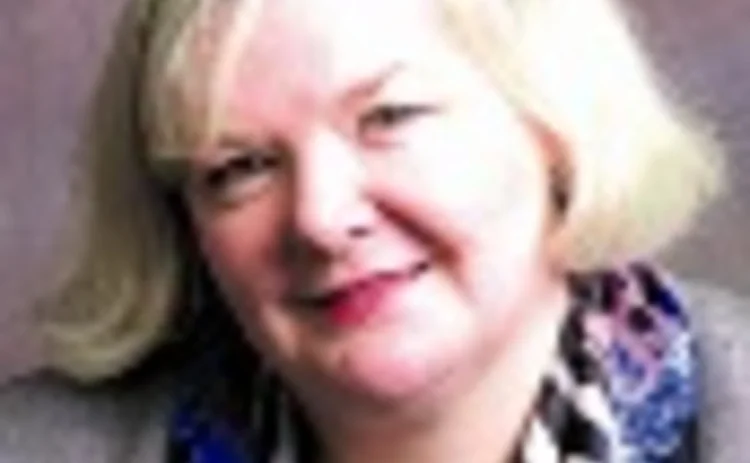
Saul trustee: failure to diversify “a damning indictment”

Penny Green, chief executive of The Saul Trustee Company - responsible for Superannuation Arrangements of the University of London - has labelled the failure of pension schemes to adopt modern portfolio diversification theory "a damning indictment of UK trustees and consultants".
The head of the £1.04 billion scheme made the remarks while participating in a panel discussion at a seminar hosted by Fathom Financial Consultants and Gatemore Capital Management on the benefits of diversification in pension fund portfolios held this morning.
Green's criticism came in response to an audience member stating that the seminar's topics were based on the classic paper by economist Harry Markowitz, first published in 1952, rather than representing a significant advance in diversification theory
Green, however, cautioned against over-reliance on Markowitz's theory, saying: "It should not be followed blindly. Just diversifying across asset class did not significantly help to reduce risk. Because most assets were leveraged, everything simply correlated to one."
Mark Hodgson, managing director of Gatemore, had in an earlier presentation stressed the benefits of diversification, but in the panel discussion he mounted a defence of UK schemes' traditional 80% equity holdings.
This prompted one audience member to ask why talking about diversifying interest rate and inflation risk was not then applied to equity risk. Both Hodgson and Green argued that such a large equity allocation could constitute a diversified portfolio, if a fund took a long-term view that equities were sufficiently undervalued.
Liad Meidar, managing partner at Gatemore, cited the endowment of Connecticut-based Yale University as an example of a well-diversified fund. This was met with incredulity by other audience members, one of whom said: "We saw in 2008 and 2009 how diversification didn't work. I can't believe I've heard a defence of the Yale model today. It's ridiculous."
Meidar responded that although the endowment had seen its strategy perform badly "over a short time horizon", it would "absolutely not" change it.
The university's endowment, whose model was designed by former Lehman Brothers banker and investment guru David Swensen, who has been an advocate of Markowitz's theory, posted a 25% loss in the year ended June 30.
Andrew Clare, professor of asset management at Cass business school and chairman of Fathom, who chaired the panel discussion, said he had not seen as heated a response at such events.
Only users who have a paid subscription or are part of a corporate subscription are able to print or copy content.
To access these options, along with all other subscription benefits, please contact info@risk.net or view our subscription options here: http://subscriptions.risk.net/subscribe
You are currently unable to print this content. Please contact info@risk.net to find out more.
You are currently unable to copy this content. Please contact info@risk.net to find out more.
Copyright Infopro Digital Limited. All rights reserved.
As outlined in our terms and conditions, https://www.infopro-digital.com/terms-and-conditions/subscriptions/ (point 2.4), printing is limited to a single copy.
If you would like to purchase additional rights please email info@risk.net
Copyright Infopro Digital Limited. All rights reserved.
You may share this content using our article tools. As outlined in our terms and conditions, https://www.infopro-digital.com/terms-and-conditions/subscriptions/ (clause 2.4), an Authorised User may only make one copy of the materials for their own personal use. You must also comply with the restrictions in clause 2.5.
If you would like to purchase additional rights please email info@risk.net
More on Insurance
The future of life insurance
As the world constantly evolves and changes, so too does the life insurance industry, which is preparing for a multitude of challenges, particularly in three areas: interest rates, regulatory mandates and technology (software, underwriting tools and…
40% of insurers fail to specify climate as a key risk – LCP
Despite regulators’ urging, many UK and Irish insurers omit climate from risk statements, says report
Libor leaders: Prudential takes SOFR for a test drive
Test trades have allowed US insurer to start getting used to a life without Libor
Fed to push ahead with capital regime for single US insurer
Prudential faces risk capital add-ons unless it sheds “systemically important” label
Brexit dims hopes for Solvency II change in UK
Lawyers say political tensions may have killed off chance of reform, following PRA U-turn
BoE creates volatility adjustment ‘stepping stone’ for insurers
Dynamic VA may be used for assets that fail to qualify for matching adjustment, say experts
No plans to scrap systemic insurer rules, says IAIS chair
A US regulator claims Europeans asked IAIS to chart own course after FSB moved to ditch G-Sii list







